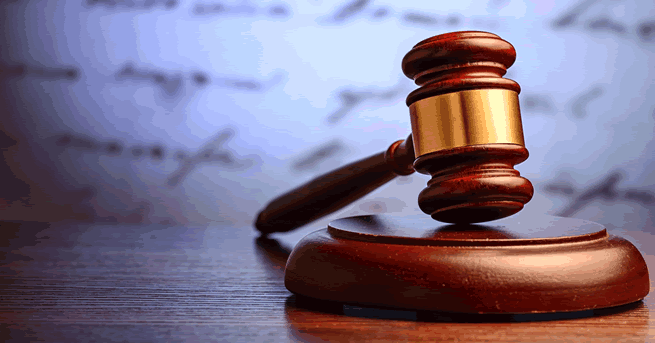Unveiling the Competence and Jobs of an Appellate Attorney
In the detailed world of appellate legislation, the duty of an attorney tackles a distinctive type requiring specialized skills and experience. An appellate attorney is entrusted with a myriad of obligations that go beyond the typical practices of lawsuits. From diligently crafting persuasive legal briefs to sharpening the art of oral advocacy, their payments are pivotal fit the result of instances at the appellate level. As we explore the complex globe of appellate law, a better assessment of the vital skills and tasks of these professionals reveals a remarkable landscape that demands both accuracy and critical acumen to navigate effectively.
The Function of an Appellate Legal Professional
In the world of appellate regulation, the function of an appellate attorney is crucial in navigating the intricacies of higher court process and advocating for customers seeking appellate testimonial. Appellate lawyers focus on handling situations on allure, where the emphasis changes from realities and evidence offered at trial to step-by-step problems and lawful disagreements. Their main responsibility is to review trial documents, identify lawful mistakes, perform legal study, draft influential briefs, and existing dental arguments before appellate courts.
Additionally, appellate lawful experts serve as critical experts to test attorneys, leading them on protecting legal concerns for possible appeal and developing solid legal debates throughout the trial procedure - post conviction lawyer. In addition, appellate attorneys play a crucial duty in shaping the regulation by promoting for legal principles that can establish precedents influencing future situations.
Crucial Abilities for Appellate Work
Effectiveness in legal evaluation and argumentation is fundamental for success in appellate job. Appellate lawyers should have exceptional study skills to look into instance law, laws, and legal precedents to create persuasive legal debates. They must have a deep understanding of procedural regulations and court guidelines to browse the intricacies of the appellate process properly. Writing abilities are paramount, as appellate job calls for drafting clear, concise, and engaging legal briefs that verbalize intricate lawful concerns persuasively. Attention to information is crucial in appellate work, as also small errors can have considerable effects on the outcome of a case.
Furthermore, crucial assuming abilities are vital for appellate legal specialists to examine lawful approaches, expect counterarguments, and identify weak points in opposite counsel's placements. In essence, a successful appellate lawful expert possesses an unique mix of analytical, study, composing, and campaigning for skills to succeed in the appellate field.
Crafting Persuasive Legal Briefs
Given the fundamental value of extraordinary research abilities and a deep understanding of procedural guidelines for success in appellate job, crafting convincing lawful briefs stands as an essential job for appellate lawyers. Lawful briefs act as the primary tool for offering disagreements and lawful analysis to appellate courts - appeals lawyers naperville illinois. To craft a convincing legal short, appellate professionals should carefully structure their arguments, cite pertinent lawful authority, and expect and respond to possible counterarguments
Appellate lawful professionals should show an eager capability to boil down complex lawful concepts into engaging and succinct debates that support their customer's position. Grasping the art of crafting persuasive legal briefs is crucial for appellate legal experts looking for success in advocating for their customers prior to appellate courts.

Planning For Oral Debates
An essential facet of the appellate process includes thorough preparation for presenting dental arguments prior to the court - post conviction lawyer. Planning for oral debates requires a detailed understanding of the case, familiarity with legal precedents, and the capacity to respond and prepare for to inquiries from the judges. Appellate attorneys have to meticulously evaluate the document, recognize key legal problems, and craft convincing disagreements to support their client's position
Before the oral disagreement, attorneys must take part in moot court works out to simulate the courtroom experience and receive comments on their presentation. This method enables them to fine-tune their disagreements, boost their distribution, and boost their ability to address challenging inquiries efficiently.

Navigating the Appeals Process
Successfully navigating the allures process calls for a critical understanding of step-by-step policies and timelines within the appellate court system. The process generally begins with submitting check this a notification of charm within a specified duration after a final judgment is entered at the test court degree (atlanta criminal appeal layer). As soon as the notice of appeal is filed, the applicant has to then put together the document on allure, that includes relevant files, records, and shows from the high court process

Throughout this process, appellate attorneys should comply with stringent procedural guidelines and due dates to ensure their disagreements are heard and considered by the appellate court. By mastering these complexities, attorneys can effectively browse the allures procedure and supporter for their clients' interests.
Conclusion
To conclude, the proficiency and tasks of an appellate lawyer are vital in navigating the complex appeals procedure. With necessary skills in crafting persuasive lawful briefs and getting ready for dental disagreements, these experts play a vital duty in promoting for clients in appellate court. By understanding the subtleties of appellate work and possessing the essential skills, appellate legal specialists are furnished to efficiently stand for customers in the appeals procedure.
Additionally, appellate legal specialists offer as strategic experts to trial lawyers, assisting them on preserving lawful issues for possible charm and developing solid lawful disagreements throughout the test process. Appellate lawful specialists need to have remarkable research study abilities to dive right into case regulation, statutes, and legal precedents to build convincing lawful disagreements.Given the fundamental value of outstanding research abilities and a deep understanding of procedural policies for success in appellate job, crafting convincing lawful briefs stands as a crucial job for appellate lawful professionals. Understanding the art of crafting persuasive legal briefs is vital for appellate lawful professionals looking for success in supporting for their clients before appellate courts.
Appellate lawful specialists must thoroughly assess the record, determine crucial lawful issues, and craft convincing disagreements to sustain their customer's position.